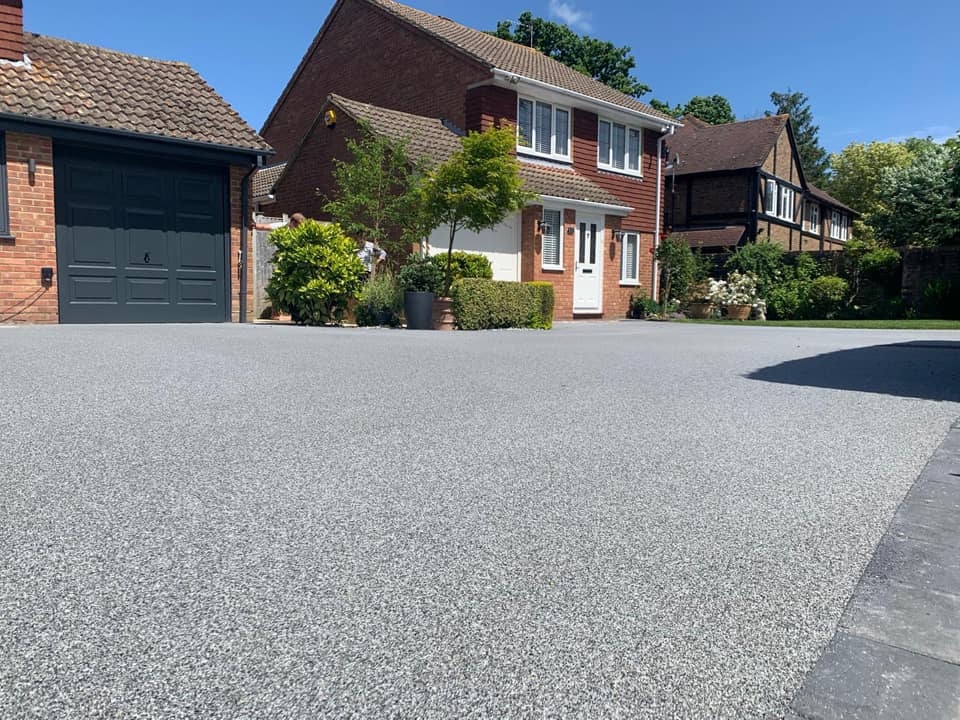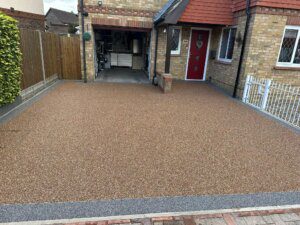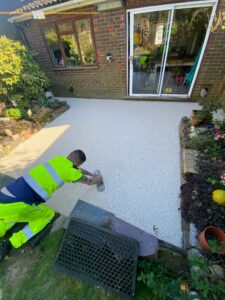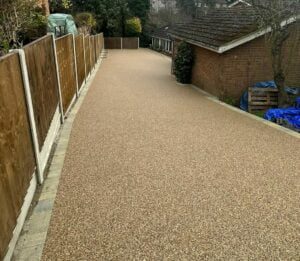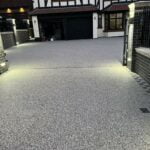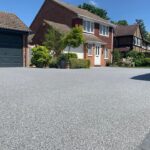The advent of resin-bound paving has meant beautiful, durable driveways with smooth finishes for homes everywhere. The high porosity of the paving makes them ideal for areas with heavy rainfall, while UV resistance properties make them ideal for hot areas. So all in all, resin bound surfaces are stunning, all-weather pavings that can withstand adverse weather and are thus suitable for home everywhere.
As durable as they are, resin bound driveways have their fair share of problems. However, you can take certain steps to avoid and solve these resin-bound driveway problems for a stunning driveway all year round.
Most issues with resin bound driveways arise from improper installation. That’s why it’s so important to have the right company install your resin bound driveway. Other issues are mainly natural wear that you can avoid by simply maintaining your driveway properly.
In this piece, we’ll highlight some of the most common problems with resin bound driveways and how to address them. That way, you can keep these problems at bay or address them as soon as they occur.
Common Resin-Bound Driveway Problems and their Solutions
If you install your resin-bound paving correctly, you don’t have to worry about any problems for a good long time. The quality and durability of resin bound driveways depend on its installation and the quality of materials. For a durable driveway worth looking at, you need the right installation company that uses high-quality materials.
If you don’t find one, here are a few problems you should expect to encounter. Luckily there are measures you can take to prevent or mitigate them.
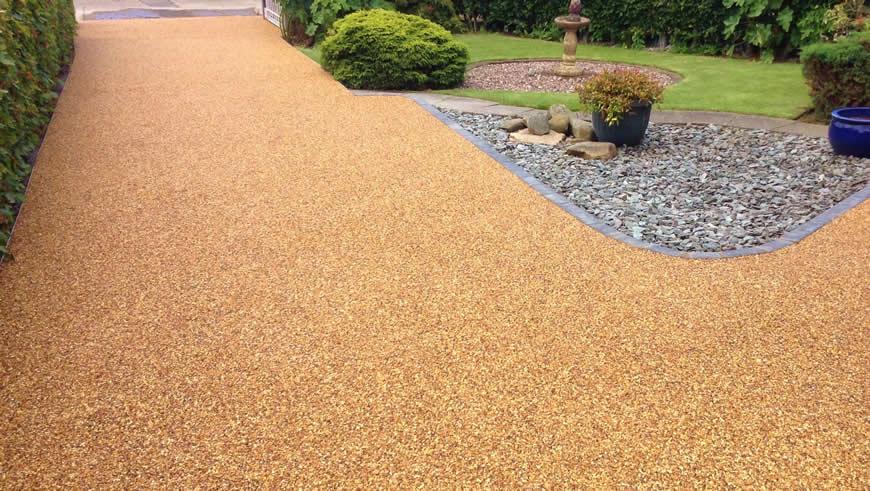
1. Loose Stones on the Surface
Sometimes the stone aggregates may fail to bond with the resin material. That means you have a few loose stones on the surface of the driveway, which interferes with your driveway’s otherwise smooth finish.
You can choose to ignore a few loose stones on the driveway, but they may develop into ugly patches. To solve this, a professional would need to remove the damaged areas and repair with stone and resin.
Remember to use stones of the same colour when patching up your driveway. The driveway may look even more patchy if you use stones of different colours. So unless that’s what you’re going for, stick to the same colour stones when addressing this issue.
2. Inefficient Drainage
Resin bound paving has many benefits, but perhaps the most significant one is its porosity. That means you don’t have to worry about flooding during heavy rains. It also eliminates the need for drains to convey surface runoff elsewhere.
Sometimes water may pool on the surface instead of seeping inside the ground. This is mostly because a wrong (non SuDS compliant) sub-base has been installed in such instances, your only solution would be to slope the driveway or install a new one.
3. Discolouring
Over time, you should expect your resin-bound driveway to discolour. The discolouration is something normal and shouldn’t worry you that much.
The resin interacts differently with some stones, which makes it discolour. Lighter coloured stones are particularly notorious for causing driveway discolouration.
Some people don’t mind the discolouration while others can’t stand it. If you don’t want your driveway to discolour, then consider using UV resistant GFRP for your driveway. That way, the resin won’t be affected by the sun’s UV rays, which reflect on the lighter-coloured stones.
4. Cracking
Cracking on your pavement is a serious issue that you need to address as soon as you can. That’s because cracking isn’t just an aesthetic flay; it can also be a safety hazard. Driving on cracked paving increases the likelihood of an accident because of the driving difficulty.
When a resin-bound paving cracks, it’s most likely because the base underneath has cracks. You can choose to overlook the issue, but sooner or later, the base may start moving. When it starts to move, then you need to fix it ASAP
Because the resin driveway surface is only a few millimeters thick, these cracks lead to the peeling of the paving. Most cracks are because of the base, and it’s highly unlikely that your guarantee covers cracks that arise from the base. Your only option is to remove the current paving and replace the base.
5. Spots of Rust
Rust spots aren’t such a common problem, but some people experience it. Rust spotting occurs in case the aggregate for the paving contains iron. The rusting doesn’t happen instantaneously but happens over time.
Using aggregate that contains iron doesn’t necessarily mean your driveway will have rust spots. Water has to get to the iron to change it into iron oxide before any rusting can occur. This makes it all the more important to address loose stones issues and cracks ASAP.
To avoid such issues, make sure you tell your contractor to avoid using aggregate with iron entirely.
6. Bumps on Your Driveway
The bumps on your resin-bound driveway come from the undulations beneath the pavement on the base. The surface won’t have bumps unless the base has bumps too.
These bumps make your driveway look uneven, but the problem is much more than a visual issue. Sometimes the bumps may cause dips on your driveway, which leads to pooling during heavy rain. The pooling leads to other issues like discolouration and even rust spots.
To solve the issue with bumps and dips, you have to remove the paving and address the bumps and undulations beneath. Ensure your base if flat and even before laying the resin-bound paving.
There’s a Solution for Every Resin Bound Driveway Problem
You can never go wrong with a resin bound driveway because it has so many benefits over your standard driveway. Although it has its fair share of problems, there’s a solution for all resin bound driveway problems. What’s more, lots of contractors have guarantees for their services, so you don’t have much to worry about.
Lastly, remember to never apply resin-bound paving on your own. There’s a high chance that you’ll mess it up. Instead, get the professionals to lay your resin-bound driveway for you.
If you need professional and expedient resin-bound driveway installation and repair, then contact us today.

